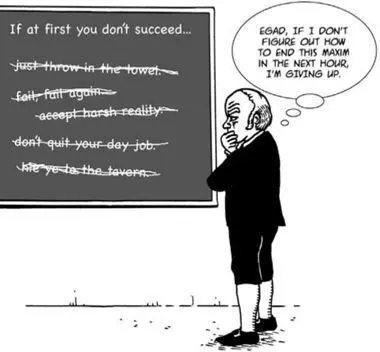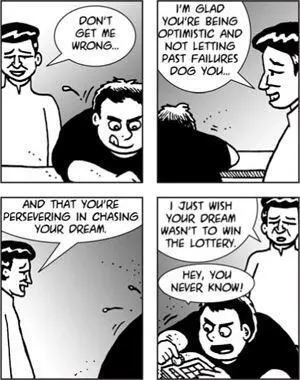Tan, Chade-Meng - Search Inside Yourself - The Unexpected Path to Achieving Success, Happiness (and World Peace)
Здесь есть возможность читать онлайн «Tan, Chade-Meng - Search Inside Yourself - The Unexpected Path to Achieving Success, Happiness (and World Peace)» — ознакомительный отрывок электронной книги совершенно бесплатно, а после прочтения отрывка купить полную версию. В некоторых случаях можно слушать аудио, скачать через торрент в формате fb2 и присутствует краткое содержание. Год выпуска: 2012, Издательство: Harper Collins, Inc., Жанр: Старинная литература, на английском языке. Описание произведения, (предисловие) а так же отзывы посетителей доступны на портале библиотеки ЛибКат.
- Название:Search Inside Yourself: The Unexpected Path to Achieving Success, Happiness (and World Peace)
- Автор:
- Издательство:Harper Collins, Inc.
- Жанр:
- Год:2012
- ISBN:нет данных
- Рейтинг книги:4 / 5. Голосов: 1
-
Избранное:Добавить в избранное
- Отзывы:
-
Ваша оценка:
- 80
- 1
- 2
- 3
- 4
- 5
Search Inside Yourself: The Unexpected Path to Achieving Success, Happiness (and World Peace): краткое содержание, описание и аннотация
Предлагаем к чтению аннотацию, описание, краткое содержание или предисловие (зависит от того, что написал сам автор книги «Search Inside Yourself: The Unexpected Path to Achieving Success, Happiness (and World Peace)»). Если вы не нашли необходимую информацию о книге — напишите в комментариях, мы постараемся отыскать её.
Search Inside Yourself: The Unexpected Path to Achieving Success, Happiness (and World Peace) — читать онлайн ознакомительный отрывок
Ниже представлен текст книги, разбитый по страницам. Система сохранения места последней прочитанной страницы, позволяет с удобством читать онлайн бесплатно книгу «Search Inside Yourself: The Unexpected Path to Achieving Success, Happiness (and World Peace)», без необходимости каждый раз заново искать на чём Вы остановились. Поставьте закладку, и сможете в любой момент перейти на страницу, на которой закончили чтение.
Интервал:
Закладка:

Resilience
Resilience is the ability to overcome obstacles along the way. Alignment and envisioning help you find out where you want to go, and resilience helps you get there.
We can train resilience on three levels:
1. Inner calm: Once we can consistently access the inner calm in the mind, it becomes the foundation of all optimism and resilience.
2. Emotional resilience: Success and failure are emotional experiences. By working at this level, we can increase our capacity for them.
3. Cognitive resilience: Understanding how we explain our setbacks to ourselves and creating useful mental habits help us develop optimism.
Inner Calm
I once asked Matthieu Ricard the most obvious question one can ever ask of the happiest man in the world. The question was: are there ever days when you are not happy?
Like most wise masters you see in Chinese kung fu movies, Matthieu answered with a metaphor: “Think of happiness as a deep ocean. The surface may be choppy, but the bottom is always calm. Similarly, there are days when a deeply happy person may feel sad—for example, he sees people suffering—but underneath that sadness, there is a large depth of unwavering happiness.”
This lovely metaphor also works for calmness and resilience. If you have access to a deep inner calm in your mind, then no matter the ups and downs of day-to-day life, you can always be resilient. Nothing can get you down for a prolonged period of time because every time something beats you down, you can always rest and recover in that inner calm and, depending on how deep your practice is, bounce back quickly.
Fortunately, this inner calm is accessible to everyone. As we mentioned in Chapters 2 and 3, by training in mindfulness, the mind can become calm, clear, and happy, and the more we practice mindfulness, the more the mind becomes so.
Just do a lot of mindfulness meditation, and this aspect will be “automagically” taken care of.
Emotional Resilience
Success and failure are emotional experiences. These emotions can give rise to grasping and aversion, which can hold us back and hamper our ability to achieve our goals. We can build upon the foundations of inner calm with practices that help us deal with the emotions involved in success and failure.
Like all emotional experiences, success and failure manifest most strongly in our bodies. Therefore, the place to start working on those emotions is in the body. The idea is to become comfortable with experiencing these emotions in our bodies, or in the words of Mingyur Rinpoche, making them our friends. We also let go of any grasping or aversion that arises. When we become capable of containing the emotions and able to let go of grasping and aversion, we can become emotionally resilient to success and failure.

In formal practice in Search Inside Yourself, we begin by calming the mind and doing a quick body scan, and then bringing up memories of failure and success. In each case, we experience them in our bodies, letting go of grasping and aversion. Here are the instructions:
MEDITATION ON RESILIENCE
Calming the Mind
Start with 3 deep breaths.
Bring gentle awareness to the breath, becoming aware of the in and out breaths, and the spaces in between.
Let’s bring attention to our bodies, beginning by focusing on sensations in the feet, legs, knees, pelvis, chest, arms, shoulders, back, neck, back of head, and face.
(Long pause) Failure
Let’s now shift gears into an experience of failure for 4 minutes.
Bring to mind a memory of an event when you experienced a sense of significant failure—not having met your goal, having let yourself and others down. See, hear, and feel it.
Observe all the associated emotions and see how they manifest in the body.
(2-minute pause)
Let us see if we can create the ability to experience all those emotions without aversion.
Consider these emotions you are experiencing as simply physiological sensations. That is all. They may be unpleasant, but they are simply experiences. Let’s simply allow these experiences to be present, to come as they wish, and to go as they wish. Just let them be, in a kind, gentle, generous way.
(Long pause) Success
Let’s now have more fun and shift gears into an experience of success for 4 minutes.
Bring to mind a memory of an event when you experienced a sense of significant success—having exceeded your goal, being admired by all, feeling great about yourself. See, hear, and feel it.
Observe all the associated emotions and see how they manifest in the body.
(2-minute pause)
Let us see if we can create the ability to experience all those emotions without grasping.
Consider these emotions you are experiencing as simply physiological sensations. That is all. They may be very pleasant, but they are simply experiences. Let’s simply allow these experiences to be present, to come as they wish, and to go as they wish. Just let them be, in a kind, gentle, generous way.
(Long pause) Returning to Calm
Let us now return to the present for 3 minutes. Check in with your body and how it feels now.
(Pause)
Take a deep breath and let go. Continue a relaxed attention on breathing and, if you feel so inclined, bring a hand up to rest on the chest.
(Pause)
Continue noticing what happens in your body, and slowly open your eyes.
Thank you for your attention.
Cognitive Resilience
We can further build upon emotional resilience with cognitive training that develops optimism. Let’s start with a story of failure.
Once upon a time, there was an athlete who was brave enough to tell the world how much of a failure he was:
“I’ve missed more than nine thousand shots in my career. I’ve lost almost three hundred games. Twenty-six times I’ve been trusted to take the game-winning shot and missed. I’ve failed over and over and over again in my life....”
And he continued,
“… and that is why I succeed .” 7
The athlete’s name is Michael Jordan, and for those of you who don’t know of him, well, he is only the greatest basketball player of all time.
Failure is the building block of success. Soichiro Honda famously said, “Success is 99 percent failure.” Thomas Watson said, “If you want to increase your success rate, double your failure rate.” There is even a popular Chinese proverb that says, “Failure is the mother of success.” (I would hate to be the mom in that family, though).
If you dislike failure, the story gets worse. If you want to do something new and innovative, you often need to feel stupid as well. This point was made by Nathan Myhrvold (talking about his friend Bill Gates but also making a general point about going outside the box):
Lewis and Clark were lost most of the time. If your idea of exploration is to always know where you are and to be inside your zone of competence, you don’t do wild new shit. You have to be confused, upset, think you’re stupid. If you’re not willing to do that, you can’t go outside the box . 8
Nathan Myhrvold completed his Ph.D. at the age of twenty-three. He was the chief technology officer at Microsoft and the founder of Microsoft Research. He was a prize-winning nature and wildlife photographer and master French chef, and he co-authored a bestselling book. He must be one of the most intelligent human beings on this earth. Even Bill Gates said, “I don’t know anyone I would say is smarter than Nathan.” Yet, even for Nathan Myhrvold and Bill Gates, innovating involves being “confused, upset, think[ing] you’re stupid.” Reading that quote made me feel better about myself because if even Nathan Myhrvold is capable of feeling stupid, I can excuse myself for doing so.
Читать дальшеИнтервал:
Закладка:
Похожие книги на «Search Inside Yourself: The Unexpected Path to Achieving Success, Happiness (and World Peace)»
Представляем Вашему вниманию похожие книги на «Search Inside Yourself: The Unexpected Path to Achieving Success, Happiness (and World Peace)» списком для выбора. Мы отобрали схожую по названию и смыслу литературу в надежде предоставить читателям больше вариантов отыскать новые, интересные, ещё непрочитанные произведения.
Обсуждение, отзывы о книге «Search Inside Yourself: The Unexpected Path to Achieving Success, Happiness (and World Peace)» и просто собственные мнения читателей. Оставьте ваши комментарии, напишите, что Вы думаете о произведении, его смысле или главных героях. Укажите что конкретно понравилось, а что нет, и почему Вы так считаете.







![Chade-Meng Tan - Search Inside Yourself - Increase Productivity, Creativity and Happiness [ePub edition]](/books/703803/chade-thumb.webp)



